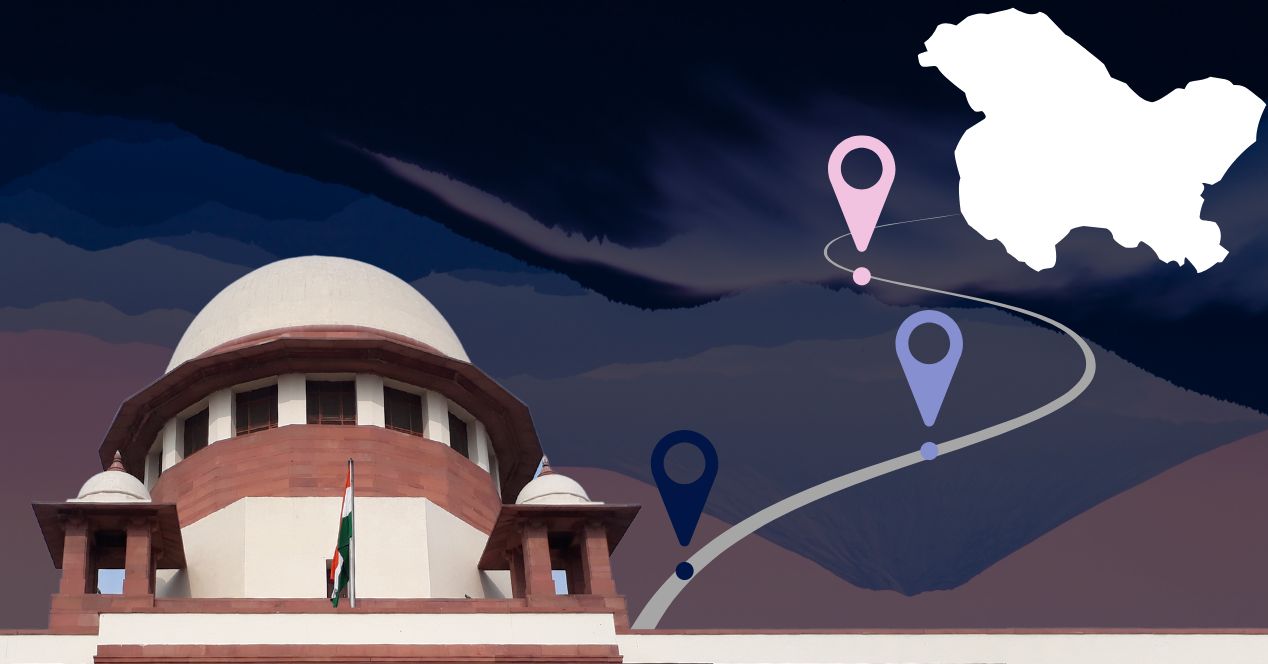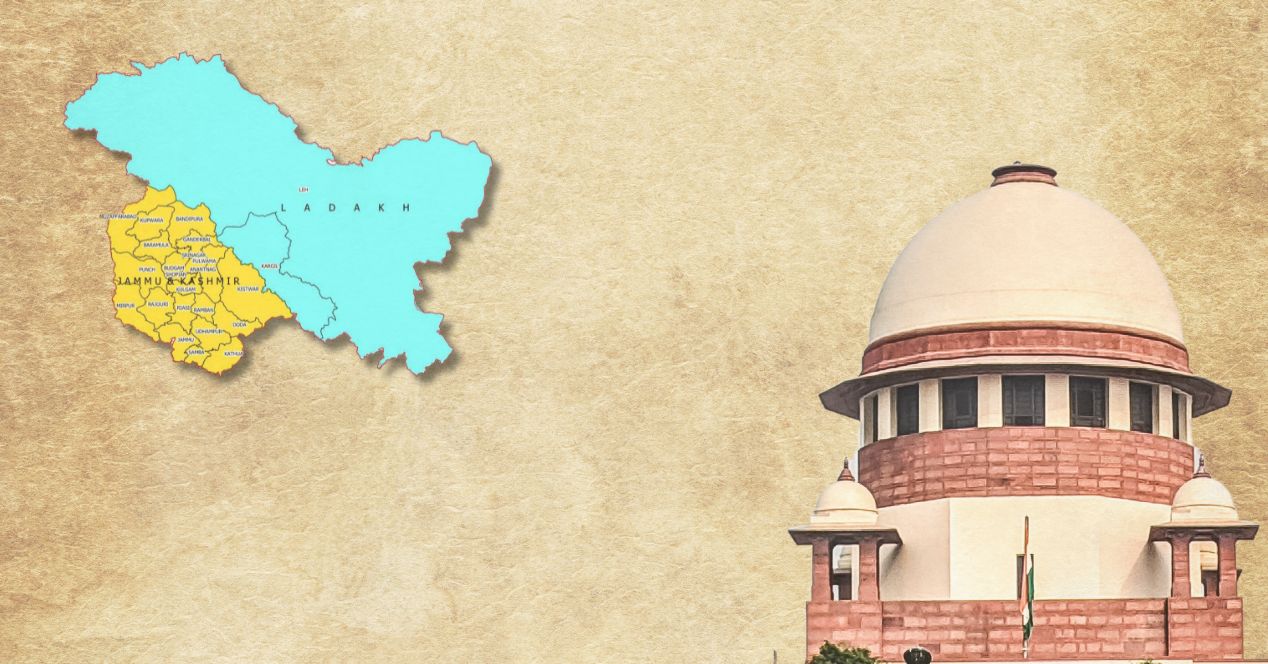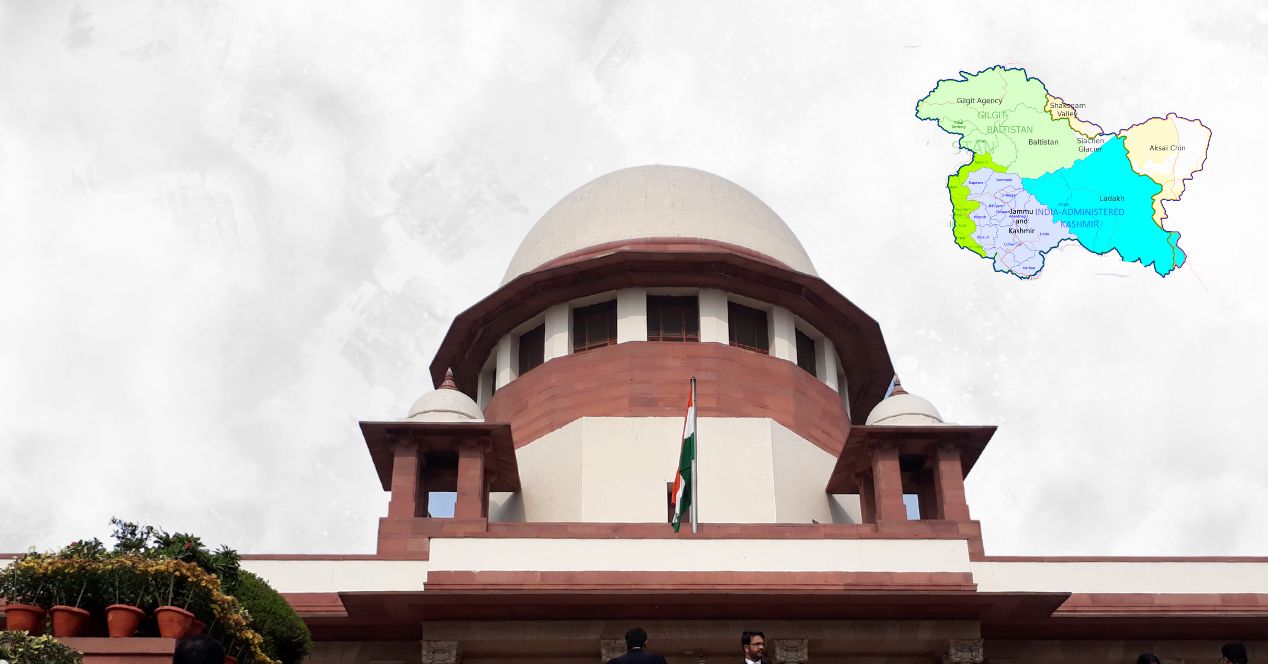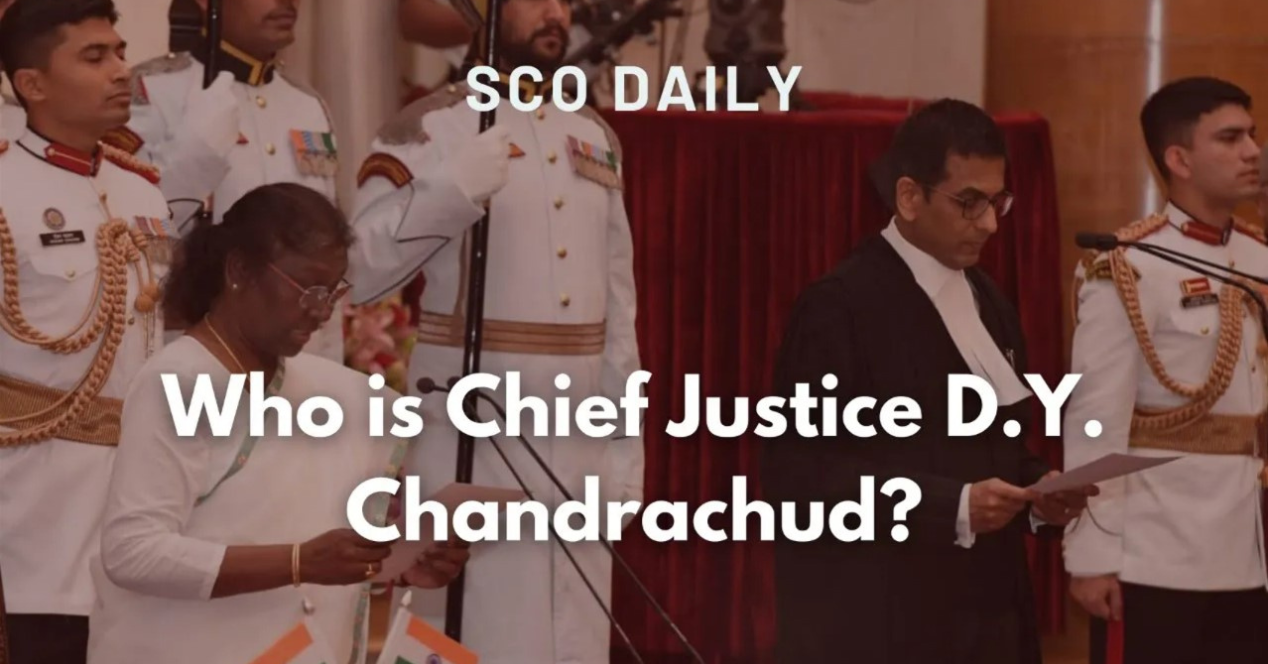Analysis
Constitutional remedies only for those who will bend the knee?
DESK BRIEF: The Supreme Court demanded a person seeking protection under Article 32 to prove their allegiance to India in an affidavit.
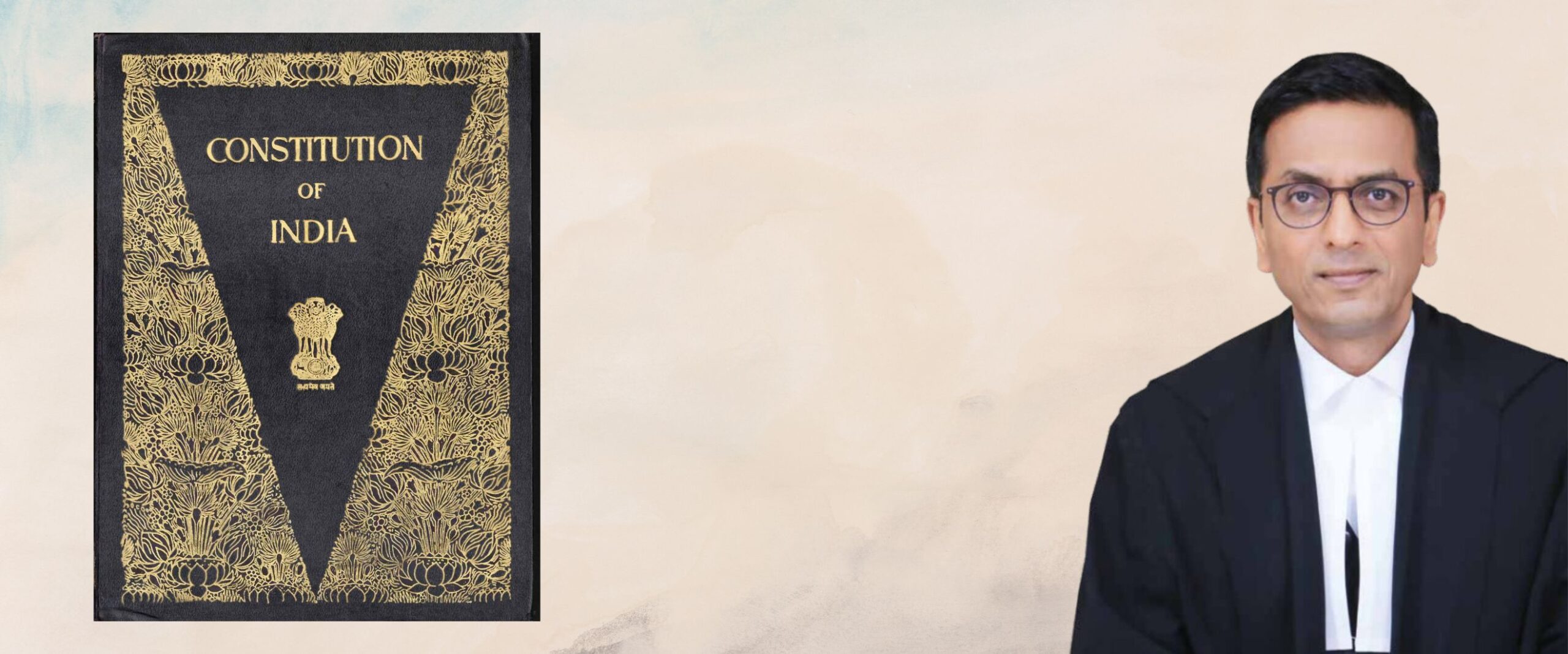
By the 15th day of hearings in the Article 370 case, those of us covering it had fallen into a familiar sense of routine. Arguments would begin at 10.30am. Along with the Court, we’d dive headlong into Constituent Assembly debates, constitutions (two sets!), and historical documents. So, when Day 15 began with allegations that the lead petitioner was a Pakistani sympathiser with a “separatist agenda,” we knew it was not business as usual.
Roots in Kashmir, a “Kashmiri Pandit youth group”, had filed an affidavit claiming that Mohammad Akbar Lone, an MP and the lead petitioner, had shouted “Pakistan Zindabad” in the J&K Legislative Assembly and shared “pro-Pak sentiments” at public events. An indignant Tushar Mehta, the Solicitor General, demanded that Lone submit an affidavit declaring his allegiance to the Constitution of India.
The Court’s initial messaging on this was mixed. At first, the Bench appeared dismissive and wary of the tactics at play. “….A lot of things which are said in the affidavit are preempted by giving the news to the newspaper,” Chief Justice D.Y. Chandrachud said. He followed up this statement with casual agreement with Mehta’s demand. He asked for Lone to submit an affidavit confirming his “allegiance to the Constitution of India” and declaring that he “strongly oppose[s] terrorism and secessionism in Jammu and Kashmir.”
In the second half, the Bench seemed sure that its demand was fair. “Do we take it,” the Chief asked lawyer Kapil Sibal, “that Mr. Lone, therefore, unconditionally accepts the sovereignty of India and that Jammu and Kashmir is an integral part of it?” When “he invokes the jurisdiction of our courts under Article 32,” the Chief explained, “he therefore necessarily abides by and has allegiance to the Constitution.”
As arguments opened on Day 16, a more benevolent Chief declared that “anyone who accesses justice under Article 32, cannot be turned out on the ground that [they are] following this agenda or that agenda.”
This was more in line with precedent, and the constitutional promise. In Harbhajan Singh Dhalla v. Union of India (1986) the Supreme Court held that under Article 32, the Court was “not concerned with the correctness or genuineness” of a petition, “except perhaps prima facie maintainability.” In Sheela Barse v. Union of India (1986), the Court held that “the petitioner need not be looked upon as an adversary in writ litigations.” The right to approach the Court under Article 32 has been widely accepted as an integral part of the basic structure, “the heart and soul of the constitution,” and the “most potent weapon” for the enforcement of fundamental rights.
Lone’s affidavit, which was eventually filed in the afternoon on Day 16, promised “to preserve and uphold the provisions of the Constitution and to protect the territorial integrity of India.”
Mehta, on his part, nudged the Court to “read what is not written.” The Union’s own affidavit declared that Lone’s sloganeering and past comments “probably” explain “his opposition to…any move that brings the people of J&K on par with the rest of the country.” Mehta suggested that the Bench must look into “who is contesting the claim of continuing 370.”
Access to justice under Article 32 appears rather straightforward. Never before has the Court demanded that a litigant prove allegiance to the Constitution to be deserving of its protection. So when the CJI said “We’ll analyse what is there in the affidavit,” we were left to wonder why this has any bearing on a constitutional challenge to the abrogation of Article 370.
This article was first featured on SCO’s Weekly newsletter. Sign up now!
Subscribe!
